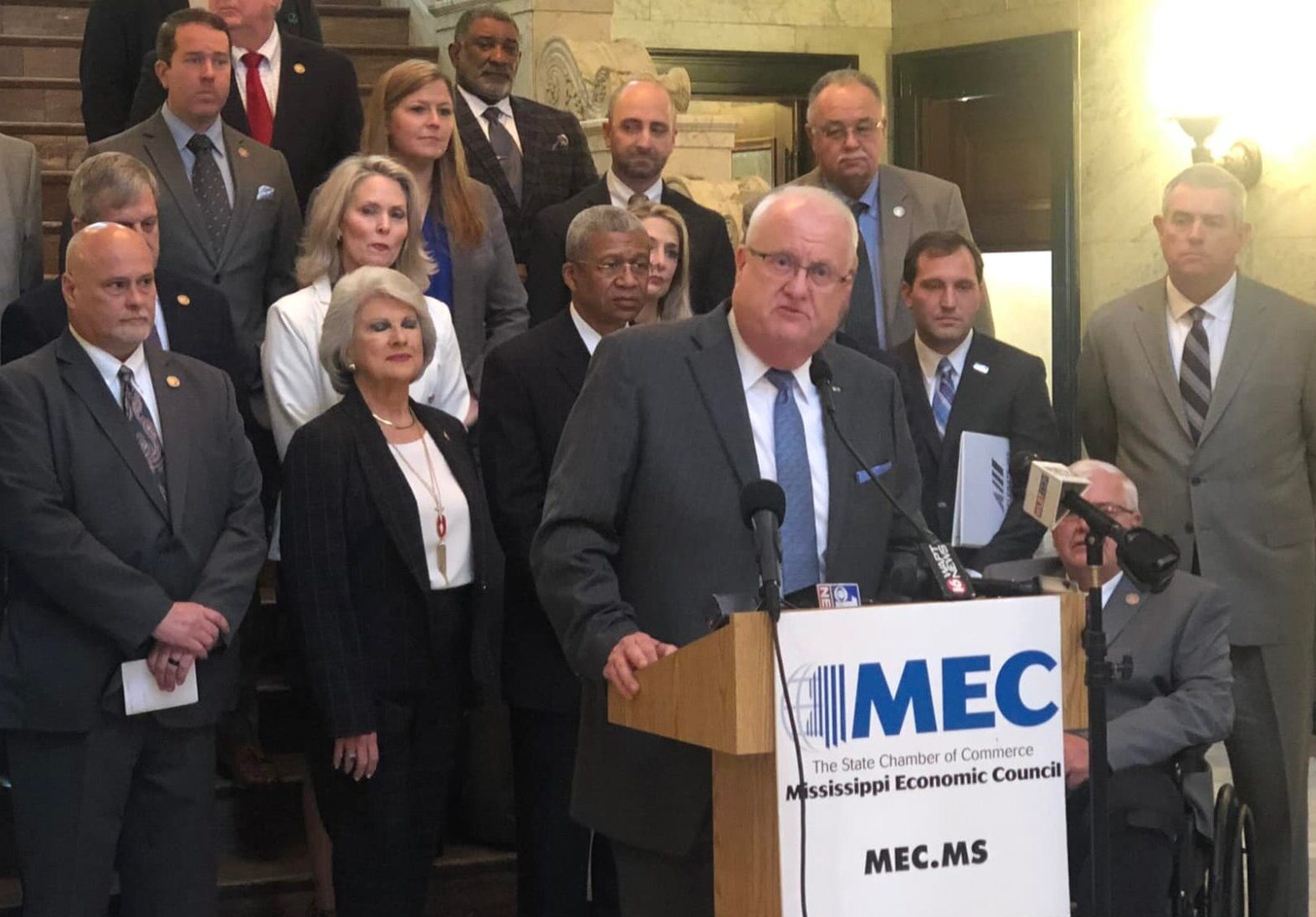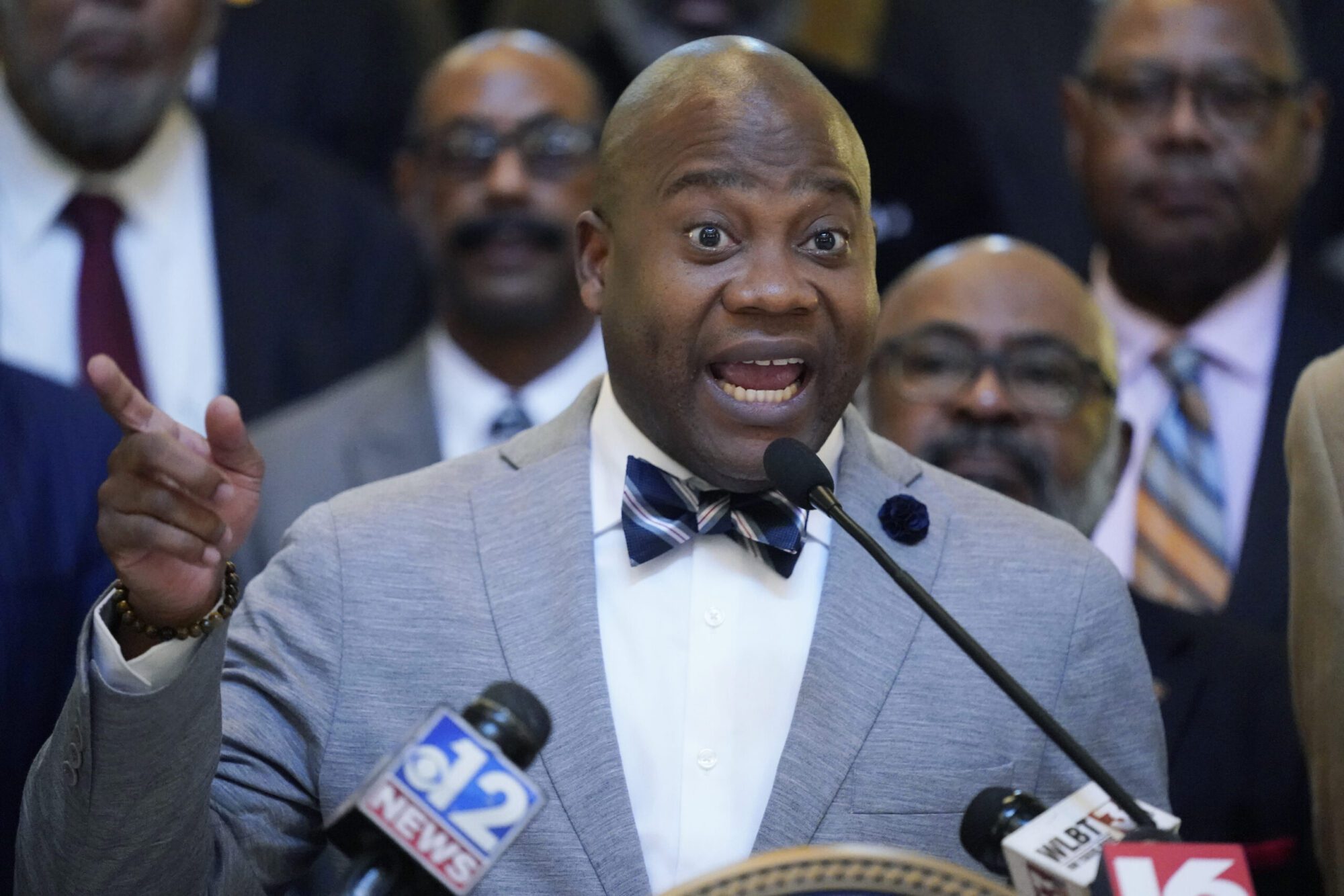
Senators are encouraged to take a closer look, realize it harms working Mississippians, and stop this absurdity now.
In one of the most egregious examples of government overreach, legislation passing along state-mandated pricing to hard-working Mississippians while excluding the legislators’ personal health plan was approved by a Senate committee this week.
The scheme, which is being touted to lower prescription drug costs, removes the Mississippi State and School Health Plan from the legislation. The 190,000-member healthcare plan covers teachers, state employees and all lawmakers. The legislation, approved by the Senate Public Health and Welfare committee, also takes away a company’s right to enter into private contracts for health benefits for its employees, and it places a mandatory dispensing fee of $11.29 that pharmacists will charge on every prescription that is filled or re-filled.

Proponents claim Senate Bill 2484, which changes the way Pharmacy Benefit Managers are utilized, will lower costs. However, research from business and industry leaders and insurance providers show cost increases to benefits for employees ranging from thousands to millions of dollars, depending on the number of employees. Unfortunately, these are costs that will be passed along to employees.
So, who is correct?
While the data continues to stack up that shows the scheme hatched by independent pharmacists will not save money, the most convincing evidence that it will raise drug costs is excluding the state health plan. If savings truly exist, legislators are acting irresponsibly by not providing these “proposed savings” to hard-working teachers and state employees.
If legislators placing cost increases on the backs of hard-working Mississippians without putting the increases on themselves wasn’t bad enough, they’re also telling companies in Mississippi they no longer have the right to negotiate contracts on behalf of their employees.
Removing a company’s right to work with their pharmacy benefit specialists is both government overreach and protectionism that benefits only one group, the independent pharmacists. Businesses in all sectors of Mississippi’s economy provide insurance through self-funded plans. These plans allow the company to determine the best, lowest-cost options for providing healthcare insurance for their employees.
Stealing the negotiating rights of private employers, that bear all the risks associated with the self-funded plan, imposes astronomical increases for coverage and forces out-of-pocket costs to skyrocket for Mississippi’s private-sector workforce.
Small businesses that purchase group insurance for employees aren’t immune, either. One model predicts that policyholders will pay more than $50 million under this legislation. On average, the changes would result in a 15%-18.5% increase in drug costs for working Mississippians and their families. This double-digit percentage increase impacts only premiums and does not reflect the additional out-of-pocket cost with rising co-pays, inflation, and higher drug costs.
So how are the proponents claiming that adding an $11.29 dispensing fee per prescription will save money? The questionable tactics not only call for removing a company’s right to a private contract, but changes the pricing formula to the National Average Drug Acquisition Cost (NADAC), a survey that estimates average drug costs.
While some drugs may cost less using NADAC, the model is flawed. Because there is such a small sample size in the NADAC model, it creates a potential for bias, according to research from Milliman, one of the world’s largest providers of actuarial services.
The financial impact of using NADAC-plus pricing will vary based on the mix of specific drug utilization, Milliman reports. Even worse, when a drug isn’t listed on NADAC, the current metric using the Wholesale Acquisition Cost will be applied without any adjustments to the proposed state-mandated dispensing fee. Additionally, there is nothing that currently prohibits companies from using NADAC pricing.
It’s important to note that Mississippi would become an outlier if these horrific regulations are implemented. Only West Virginia has a similar scheme. Does it work? No one knows because there isn’t any actual data. A series of complications delayed implementation until Jan. 1. However, after only one month of the law being in effect, the West Virginia Chamber of Commerce sent a survey to gauge the impact, after hearing from some members their pharmacy benefits have seen significant cost increases.
As more senators are understanding what this legislation does, they are beginning to speak out against it. Senator Brice Wiggins led the charge during the committee meeting to make meaningful changes to the bill or kill the legislation. He was joined by three other Senators – Josh Harkins, Chris Johnson, and Chad McMahan – on a failed motion to table the legislation. Several Senators who originally signed onto the legislation as co-authors have since asked to have their names removed after learning of the negative impacts of this bill.
The bill is currently on the Senate calendar, and the full body will now have a chance to determine if the bill will continue through the legislative process. Senators are encouraged to take a closer look, realize it harms working Mississippians, and stop this absurdity now.
The bottom line is the bill is a tremendous overreach that benefits a small number of pharmacists while protecting legislators’ personal healthcare coverage. The ultimate burden of this atrocious legislation falls on employers, their covered employees, and Mississippians with individual coverage.










